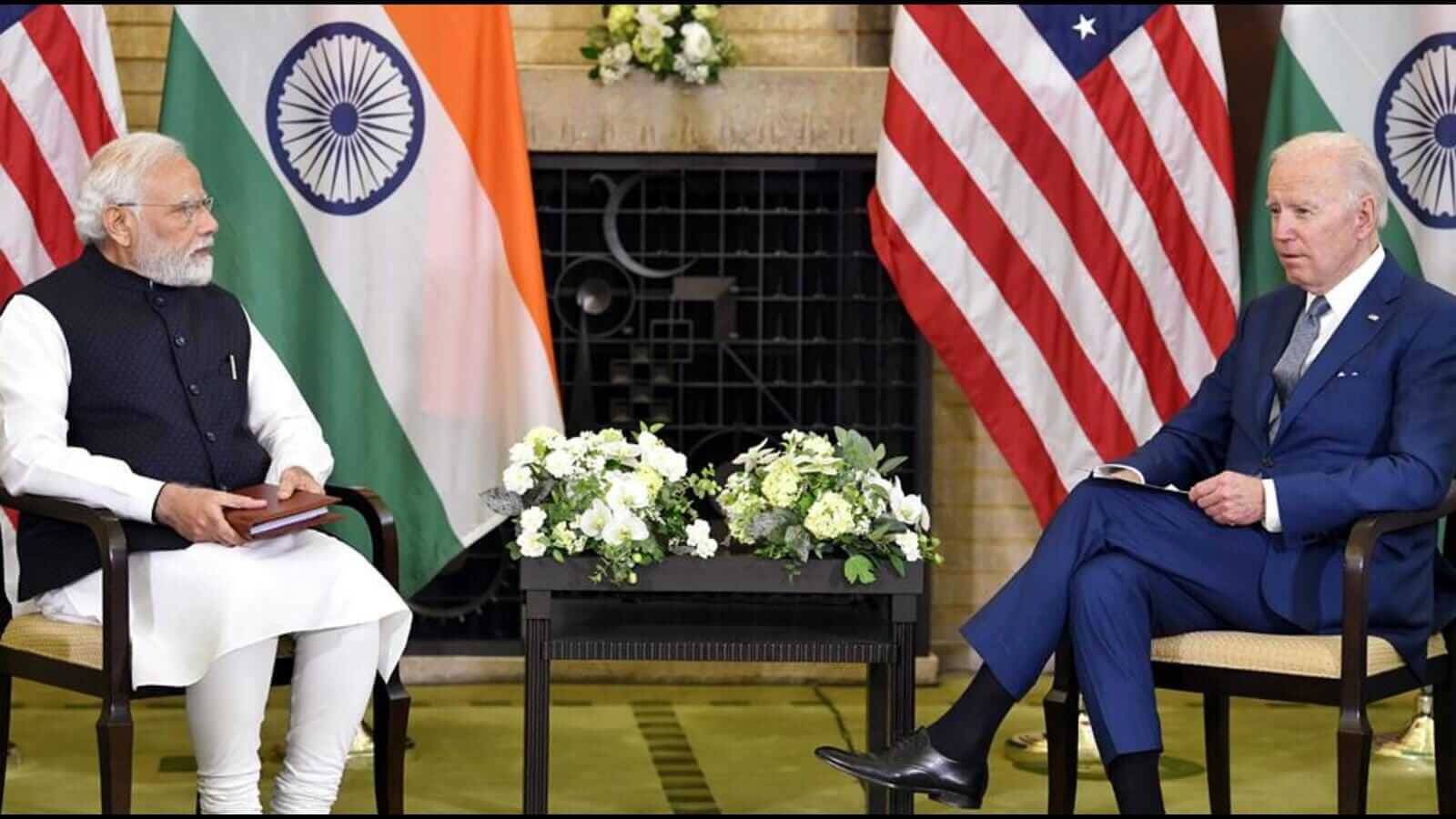An op-ed in The Economist said that Indian PM Narendra Modi and US President Joe Biden are pushing the two countries closer together, adding that the South Asian country is “indispensable” for Washington’s ambitions in Asia and its efforts to deter Chinese aggression.
On India’s Importance for the US
The article highlighted that despite India’s contribution to fuelling “Russia’s war economy,” and the alleged deterioration of democratic freedoms in the country, PM Narendra Modi will receive a “rapturous welcome” during his visit next week. He has been granted the “honour of a state visit” by Biden. Modi will also be one of the only foreign leaders to address the joint session of Congress, joining a list that includes Winston Churchill, Nelson Mandela, and Volodymyr Zelensky.
In the visit, the US intends to secure defence deals with Modi.
While India and the US appear to be “natural partners,” the current relations are a result of a “25-year effort” to strengthen ties despite “political changes” in the country.
Quite the cover.
— Tanvi Madan (@tanvi_madan) June 15, 2023
Though that description falls into the usual trap of assuming this is one sided.
India might not love the west. But it needs the west just as much — and in some areas, even more https://t.co/hw4gY55lKN
As a result, India and the US are key players in the Quad, through which they have increased defence cooperation and enhanced military collaboration.
On Prospective Friction in Ties
However, the author noted two “potential sources of friction” between India and the US.
First, the article highlighted India’s “pro-Western tilt” as pragmatic, not ideological. As a part of its foreign policy since independence, India is “suspicious of Western countries and flatly rejects their claim to global leadership.”
As a result, it maintains ties with Russia, particularly for defence goods and services. Meanwhile, it is unclear how much support it can secure from the US in case of border skirmishes.
Second, the author highlighted PM Modi’s “attacks on liberal norms” through the government’s “Hindu nationalist” and “Islamophobic” policies that sideline 200 million Indians. In addition, the op-ed states that press freedoms and judicial independence are under threat in India.
Nevertheless, the author predicted “mutual suspicion of China alone should keep India close.”
On India’s Recent Successes
🧵 Ahead of Indian PM Modi's state visit to the US, here are some slides on US-India ties.
— Tanvi Madan (@tanvi_madan) June 15, 2023
Certain things become apparent
- ties go back to 1947 (or before) but, in some ways, cooperation is quite new, w/ a reset in 1999-2000
- it's a multi-domain mutually beneficial rel. 1/ pic.twitter.com/E1dPqPO3u9
The op-ed noted that India’s “global clout” was “rising fast,” highlighting that India is the world’s fifth-largest economy. Further, the article stated that India’s GDP will overtake that of Japan and Germany in 2028.
The author also applauded India’s strong diaspora that holds influence from the Americas to the Gulf. In this regard, the heads of leading tech giants, including Microsoft and Google, are Indian Americans.
To this end, it said, “India’s ascent is an uplifting story.”
In contrast to China, New Delhi’s exports are centred around services from call centres to data scientists, in which India is the seventh largest “vendor.”
Meanwhile, under Modi’s leadership, India is also emerging as a manufacturing hub, looking to diversify global supply chains and markets. “India’s chief failing is its vast numbers of unskilled, jobless young people. It is trying to help them by pioneering a digital welfare state,” the editorial added.
In this regard, while the US will speak out against the deterioration of democratic principles in India, they will continue their bilateral ties and “long-term business partnership” as there is a “huge upside” to their relations.

